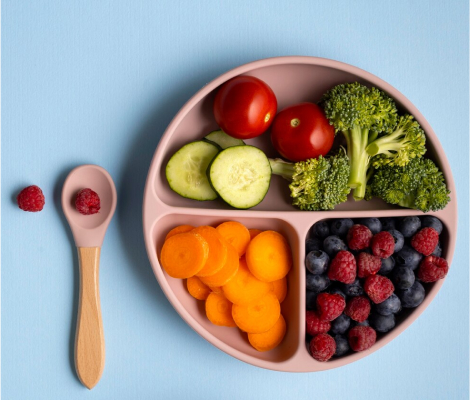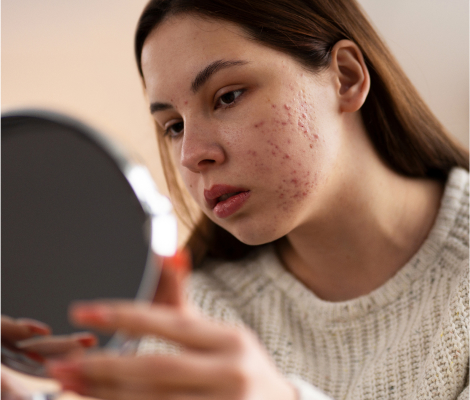Experimenting with drugs and being an addict are two very different things, yet many still believe that experiences with drugs will undoubtedly lead to addiction problems. The truth is that an experiment with drugs is sometimes just an experiment, and experiences with drugs can be very unpleasant, resulting in abstinence from similar substances.
However, experiences with drugs can also be very enjoyable, leading a person to explore their limits, mix alcohol and drugs, try stronger drugs, and potentially develop an addiction. It can be of vital importance to be able to recognize the difference between experimentation and addiction to drugs. Recognizing those subtle addiction warning signs can be essential for early intervention and one´s recovery.
You might be wondering if experimenting with drugs is normal and what the dangers of drug experimentation are. You might be unsure about the difference between experimentation and addiction or whether experimentation can turn into addiction. Answers to these questions and much more can be found in the text that follows.
Skip to:
Understanding drug experimentation
According to the National Institute on Drug Abuse, by the time they are seniors, 50% of high school students will have tried an illegal drug at least once. The numbers are surely higher if we were to include those who tried alcohol. Experiences with drugs vary, resulting in different opinions on drugs and, consequently, various levels of desire to try them again.
Some people have a very poor experience, resulting in disinterest in further experimentation. Others find experiences with drugs interesting and exciting and are more likely to repeat the behavior.
What is drug experimentation?
Experimenting of any sort implies trying something for the first time. In the case of substances like drugs, it means either trying them for the first time or trying to use them in a certain way for the first time. There´s usually a lack of knowledge and a sense of excitement, and the use is infrequent.
Many people experiment with drugs because of the social setting and voluntarily. They can typically stop using without an intervention. However, there are cases of experimenting leading to addiction. The second scenario is more likely to happen if the drugs were used to escape problems.

Is experimenting with drugs normal?
There is a natural tendency in people to explore the forbidden, and since most of the drugs are illegal in many countries, interest in them spikes. At some point in their lives, almost everyone will have a drink, light a cigarette, and try drugs.
This, however, does not make drug experimentation any less of a concern. Under the influence, you might behave riskier, and experiments that go wrong can have deadly consequences. Substances will also have an impact on your overall health and might expose you to a greater risk of respiratory and cardiovascular problems.
Experimenting with drugs can also be a warning sign for the existence of some underlying issues. In that case, rather than talking about normality, we should speak of the functionality of experiences with drugs. An experiment with drugs can be a dysfunctional effort to cope with a problem.
Get Help. Get Better. Get Your Life Back.
Searching for Accredited Drug and Alcohol Rehab Centers Near You?
Even if you have failed previously and relapsed, or are in the middle of a difficult crisis, we stand ready to support you. Our trusted behavioral health specialists will not give up on you. When you feel ready or just want someone to speak to about therapy alternatives to change your life call us. Even if we cannot assist you, we will lead you to wherever you can get support. There is no obligation. Call our hotline today.
(844) 597-1011What are the dangers of drug experimentation?
Not every experiment with drugs will be destructive, but there are surely risks and dangers to drug experimentation. Like alcohol consumption, using drugs may lead a person into risky behaviors, such as unsafe sex, driving under the influence, or other potentially dangerous activities.
Drugs affect brain chemistry, which can be more dangerous the younger the person is. Teens are more susceptible to the potential negative impact of drugs on the brain. Their cognitive development can be impaired, and the risk of developing substance abuse disorder is higher.
Bearing all these dangers of drug experimentation in mind, if you notice your teenager developing a substance problem, early reactions are advised. Marijuana detox can significantly lower the chances of experiencing irreparable changes to the brain.
Who is more likely to do an experiment with drugs?
Experiences with drugs are more likely to happen at a certain age or in certain life circumstances. In some cases, environmental factors play a significant role in increasing the chances of both experimenting only and experimenting leading to addiction.
Young people usually have a higher drive to try new things, drugs being only one of them. Young people frequently experiment with drugs out of a desire to fit in. But for some, the dangers of drug experimentation seem too much of a risk to take, so they don´t give in to peer pressure.
People going through demanding life changes or other stressful situations, especially when they lack social support, could experiment with substances as a way to cope with them.
Finally, those who have been exposed early to drugs, like children of people with an addiction, are more likely to try drugs themselves at an earlier age.

Why do people experiment with drugs?
Motives for experimenting with drugs vary from person to person. Some common reasons for experimenting with substances are:
- Feeling the curiosity
- Expressing rebellion
- Being exposed to influential environmental factors
- Having certain personality traits
- Searching for a coping mechanism
- Enhancing self-esteem
- Hoping for pain relief
Feeling the curiosity
Many people experiment with drugs because they are seeking new experiences in life. Although much information is shared about the dangers of drug experimentation and the potential negative impacts of different substances, consumption might lead to a positive experience as well, and that is often a sufficient reason to be curious and try to satisfy curiosity by experimenting.
Previous experiences with drugs might have been positive, so a person can be curious if different substances would have the same effect. This could ultimately lead to new explorations of both drugs and one´s limits.

Get Your Life Back
Find Hope & Recovery. Get Safe Comfortable Detox, Addiction Rehab & Dual Diagnosis High-Quality Care.
Hotline(844) 597-1011Expressing rebellion
In contrast to trying to fit in with social norms, a person might desire to be unconventional and, especially for teenagers, demonstrate rebellion. Knowing that drugs are illegal and disapproved by parents, they might lean into experimenting with substances as a way to prove free will, independence, and unconformity.
Being exposed to influential environmental factors
Environmental factors are especially important in adolescence and college when the desire to fit in makes a person sensitive to peer expectations. But even later in life, the pressure might persist, demonstrating the importance of the environment for substance consumption.
You should bear in mind that the environment includes more than just peers. Family environment can become a crucial factor if there’s a history of substance consumption and a person learns that this is acceptable or even desirable behavior.
Finally, the media people are exposed to is also a model to follow, especially for younger people. In popular movies, drug use is often shown as not bearing any negative consequences, leading a person to fail to notice why is experimenting with drugs risky.
Having certain personality traits
A person might have a very elevated propensity to take risks or a high sensitivity to boredom. People with these personality traits might actively seek whatever satisfies their need for new (and sometimes dangerous) sensations, which could lead them to experiment with different substances. Additionally, adolescents with poor self-control and an attention deficit are more likely to experiment with a variety of things, including drugs.
First-class Facilities & Amenities
World-class High-Quality Addiction & Mental Health Rehabilitation Treatment
Rehab Centers TourRenowned Addiction Centers. Serene Private Facilities. Inpatient rehab programs vary.
Addiction Helpline(844) 597-1011Proven recovery success experience, backed by a Team w/ History of:
15+
Years of Unified Experience
100s
5-Star Reviews Across Our Centers
10K
Recovery Success Stories Across Our Network
- Low Patient to Therapist Ratio
- Onsite Medical Detox Center
- Comprehensive Dual-Diagnosis Treatment
- Complimentary Family & Alumni Programs
- Coaching, Recovery & Personal Development Events
Searching for a coping mechanism
For some, substances can be a way to cope with trauma or stress. They offer an escape from reality and temporary relief, as they can result in dissociation.
It´s not unusual for people to try drugs when stress leads to insomnia. Teens especially lean into experiences with drugs while trying to deal with mental health problems such as anxiety and depression. The risk of experimenting leading to addiction can escalate if a person does not develop healthy coping mechanisms.
Enhancing self-esteem
Substances enhancing self-esteem seem to be especially prevalent with alcohol consumption, as it has a disinhibitory effect. However, at a certain age, experimenting with substances can be seen as desirable behavior among peers. Experimenting with drugs is, in those cases, seen as a way to develop a positive image in the group.
Hoping for pain relief
Those dealing with a lot of pain due to their medical condition might give illegal substances a try as a way to deal with pain that cannot be managed in another way. The risk of experimenting and leading to addiction is usually low in those cases. Those experiencing pain relief after their first experience with drugs are more likely to consult with a doctor and keep on using substances in a controlled manner.

The journey from experimentation to addiction
Not every experiment with drugs will lead to addiction, but almost every drug addiction starts with experimenting. Experimenting might satisfy curiosity, but it may also pave the way to occasional or recreational consumption or even addiction.
Although one might not lead to another, when it does, it´s often gradual and passes through stages. However, it´s important to understand the quickness of experimenting leading to addiction. Experimenting with so-called soft drugs can progress into experimentation with harder drugs or more frequent use. From initiation to escalation and maintenance to complete dependence, drug use becomes more intense with each stage. Typically, experts talk about four stages of addiction development.
- Experimenting with drugs: Experimenting, or initiation, is the first step characterized by the infrequent and inconsistent use of drugs. A higher level of self-control is present, and there´s no dependence on any substance.
- Regular drug use: This stage takes place when a habit has developed. A person might have a habit of smoking weed only with a certain group of people or taking MDMA only on weekends. Self-control has weakened, but some boundaries still remain.
- Risky drug use: In this stage, a person starts feeling the need for a substance to the point of behaving in a risky way. Some negative effects of drug use are present, but despite knowing about the dangers of drug experimentation, they keep on having experiences with drugs.
- Dependence or drug addiction: physical, mental, and emotional dependence on drugs are characteristics of this stage. Withdrawal symptoms became part of the experience, and drug use is compulsory.
Science reveals that reward motivation and executive control play a part in the likelihood of experimenting turning into an addiction. A study from 2016. concludes that weak executive control and heightened reward-seeking act as predictors of drug abuse, while heightened reward-seeking combined with a strong control system predicts occasional experimentation only.
Experimenting leading to addiction is more likely to happen if some risk factors are present.
Recognizing the signs
As with social drinking vs. alcoholism, it´s important to know the difference between experimentation and addiction to drugs. To a worried person, the line between experimentation and addiction might not seem clear. Learning the difference between experimentation and addiction can save you from questioning and stress and can potentially help you save someone else as well.
The difference between experimentation and addiction to drugs
Typically, experimenting with substances (alcohol or drugs) happens around a specific event, like college parties or sleepovers. Usually, substances would be available, and consumption would happen spontaneously when opportunities presented themselves. The desire to try something new and an overall sensation of excitement are present. It might also occur in a more planned or structured way when the goal is to try to resolve an issue, like physical or mental pain.
No matter the reason behind it, common denominators for experimenting are:
- Lack of knowledge about the effect of the substance
- Lack of knowledge about how to get the substance
- Present desire to test one’s limits
In the case of addiction, consumption does not happen without a prior plan. Instead of happening at an event, alcohol and drug consumption become events. People with an addiction have more knowledge about the substance they use and the effect it will have on them. They also know various ways to use and conceive of it. Finally, while those who experiment with substances are trying to understand their limits, addicts are trying to surpass them, often by using stronger substances.

The signs of addiction development
Being familiar with the difference between experimentation and addiction is a good start, but sometimes, more tangible signs are necessary to be certain of drug abuse problems. You should pay attention to both the behavior and state of a person when trying to determine whether someone surpassed the stage of experimenting and is moving towards drug dependence.
There are several signs that addiction has developed:
- Frequency of misuse: Misuse indicates people knowing their limits and trying to surpass them, knowing all the effects of substances, and intentionally pursuing them. This being frequent rather than occasional can be the first sign of addiction developing.
- Tolerance: The body gets used to substances and starts metabolizing them, which results in more and more substance intake (or taking stronger substances) to achieve the same effect one had before the tolerance developed. With occasional users, breaks between consumptions are long enough for the body not to develop tolerance. If tolerance, however, is developed, this can be an indicator of substance dependence.
- Cravings: Cravings can be a sign of chemical dependency. You start thinking often about a concrete substance and feel the need for it. Serious cravings can come in the form of the belief that one cannot function without the substance.
- Withdrawal: Having withdrawal symptoms implies dependence on substances. They can manifest physically (e.g., muscle spasms, vomiting) or mentally (feeling low until the next consumption).
- Self-medicating: This may be a warning sign, especially for those dealing with problems and entering substance consumption as a way to cope with them. Misuse of prescription drugs due to their availability, self-prescribing a treatment, and taking medicine without a physician’s control can also be signs that addiction has developed.
Of course, not every addiction looks the same; there are specificities depending on the substance in question. You might want to more thoroughly investigate the signs of marijuana addiction, as cannabis is the most frequent drug people experiment with.
The effect of drugs on mental health
Not only are drugs negatively impacting physical health, but they take a toll on mental health as well. Short-term or experimental drug use can have both a positive and negative impact on your psyche, depending on factors such as the type of drug or your existing mental state. Your genetic and psychological predispositions are important factors as well.
Sometimes euphoria or feelings of relaxation are present, but common dangers of drug experimentation are feelings of paranoia and fear. Those struggling with anxiety might feel it worsen. There is a low-mood phase after some drug use, during which depression symptoms appear.
Experimenting with hallucinogen drugs can be especially dangerous and detrimental. LSD and magic mushrooms can trigger suppressed trauma and cause distress and irrational behavior.
If drug consumption progresses to stages of regular use, the risk of anxiety and depression increases, even with what is considered a soft drug, like cannabis. Long-term substance abuse is often associated with schizophrenia, bipolar disorder, manic depression, and ADHD, the National Drug Intelligence Center warns.
World-class, Accredited, 5-Star Reviewed, Effective Addiction & Mental Health Programs. Complete Behavioral Health Inpatient Rehab, Detox plus Co-occuring Disorders Therapy.
CALL(844) 597-1011End the Addiction Pain. End the Emotional Rollercoaster. Get Your Life Back. Start Drug, Alcohol & Dual Diagnosis Mental Health Treatment Now. Get Free No-obligation Guidance by Substance Abuse Specialists Who Understand Addiction & Mental Health Recovery & Know How to Help.
Seeking help and intervention
Knowing that experimenting with drugs can lead to an addiction, seeking professional help while still in the experimentation phase can play a significant role in addiction prevention. You might start by exploring substance abuse treatment centers for additional information and guidance.
Families often play a crucial role in recognizing and addressing drug issues, as people are usually unaware that they have developed a substance abuse problem. You might be the first one to recognize the signs and offer support.
Having an open, nonjudgmental conversation with your loved ones is a good start if you are suspicious of drug use. Discussing the question of why is experimenting with drugs risky might already result in giving up on experiences with drugs. If this is too challenging or you are uncertain about the stage your loved one is in, consulting a professional from any of the We Level Up centers can equip you with the knowledge and courage to take action.
If your loved one has already progressed to more advanced stages of the experimenting leading to the addiction process, a rehabilitation center would be a good choice to set them back on track. Many people experiment with drugs because of the physical or mental issues they are facing. Licensed professionals helping them deal with these underlying issues that created the drug use problem in the first place can tremendously improve their well-being.
What´s important to remember
Not every experiment with drugs will create a substance abuse problem, but there are many dangers of drug experimentation. Physical and mental health are affected, and learning and memory capacities can decrease, especially at a younger age. Some people are at a higher risk of developing a substance abuse problem due to biological or environmental factors.
To be able to recognize even the early signs of substance abuse, learning about the difference between experimentation and addiction to drugs is encouraged. Knowledge of the topic of what is drug experimentation and what is a drug problem makes you more observant and mindful, and you can one day help either yourself or the people you care about.
People can be unaware of their developing drug issues, so friends and families can play a significant role in the early stages. The National Institute of Drug Addiction warns that willpower alone is not enough to overcome drug addiction, making professional support indispensable. We Level Up drug rehabs can offer assistance in overcoming substance abuse issues, no matter the stage of use.
Experience Transformative Recovery at We Level Up Treatment Centers.
See our authentic success stories. Get inspired. Get the help you deserve.
Start a New Life
Begin with a free call to an addiction & behavioral health treatment advisor. Learn more about our dual-diagnosis programs. The We Level Up Treatment Center Network delivers recovery programs that vary by each treatment facility. Call to learn more.
- Personalized Care
- Caring Accountable Staff
- World-class Amenities
- Licensed & Accredited
- Renowned w/ 100s 5-Star Reviews
We’ll Call You
Sources
Khurana, A., Romer, D., Betancourt, L. M., Brodsky, N. L., Giannetta, J. M., & Hurt, H. (2015). Experimentation versus progression in adolescent drug use: A test of an emerging neurobehavioral imbalance model. Development and psychopathology, 27(3), 901-913. https://www.ncbi.nlm.nih.gov/pmc/articles/PMC4890960/
Schramm-Sapyta, N. L., Walker, Q. D., Caster, J. M., Levin, E. D., & Kuhn, C. M. (2009). Are adolescents more vulnerable to drug addiction than adults? Evidence from animal models. Psychopharmacology, 206, 1-21. https://www.ncbi.nlm.nih.gov/pmc/articles/PMC3025448/
UNODC. World drug report 2018. chrome-extension://efaidnbmnnnibpcajpcglclefindmkaj/https://www.unodc.org/wdr2018/prelaunch/WDR18_Booklet_4_YOUTH.pdf








